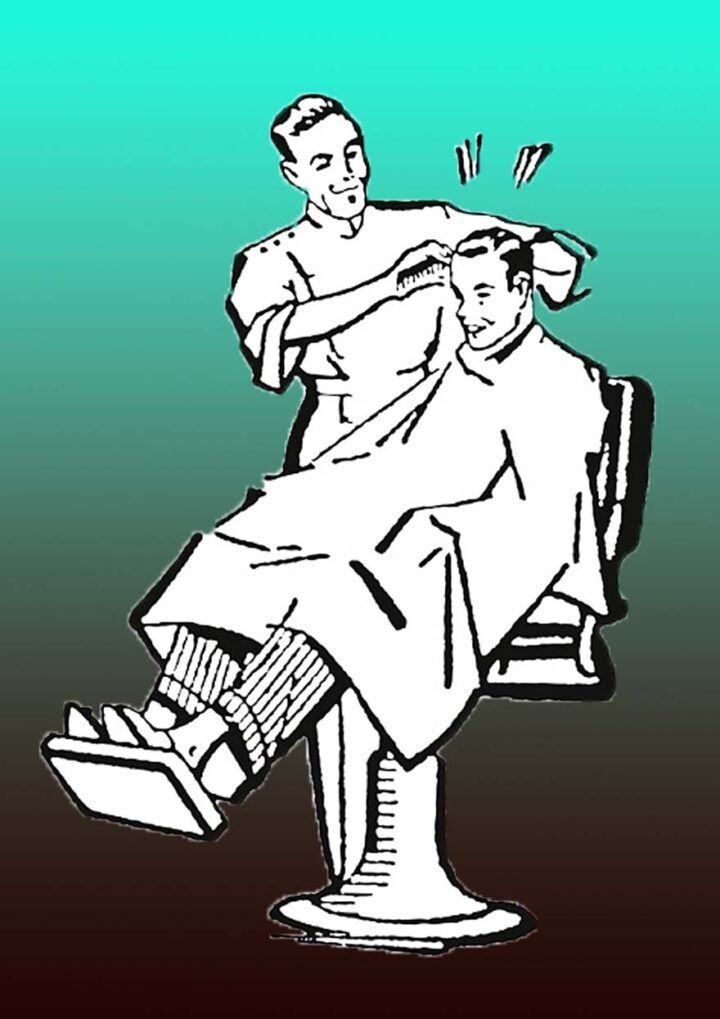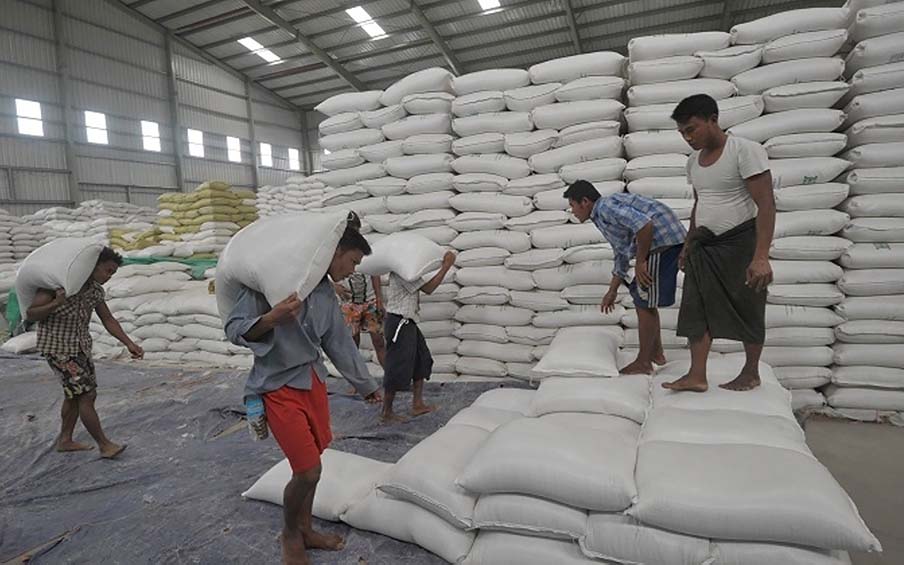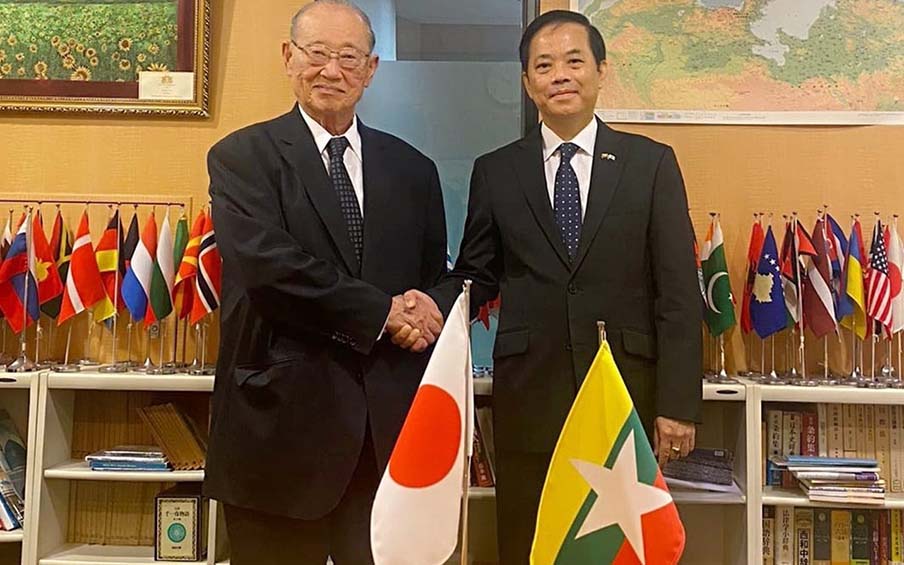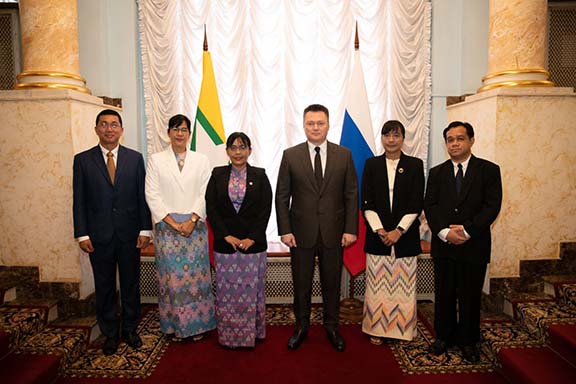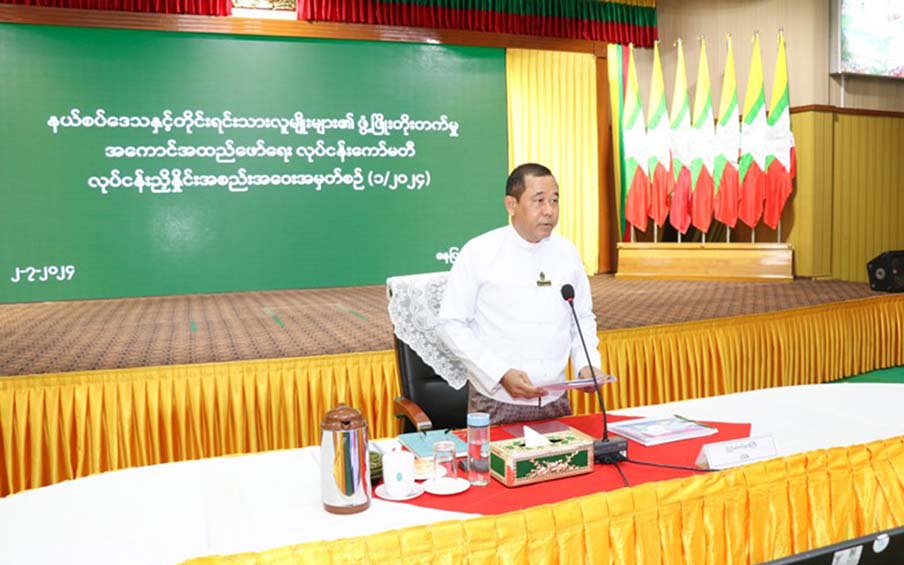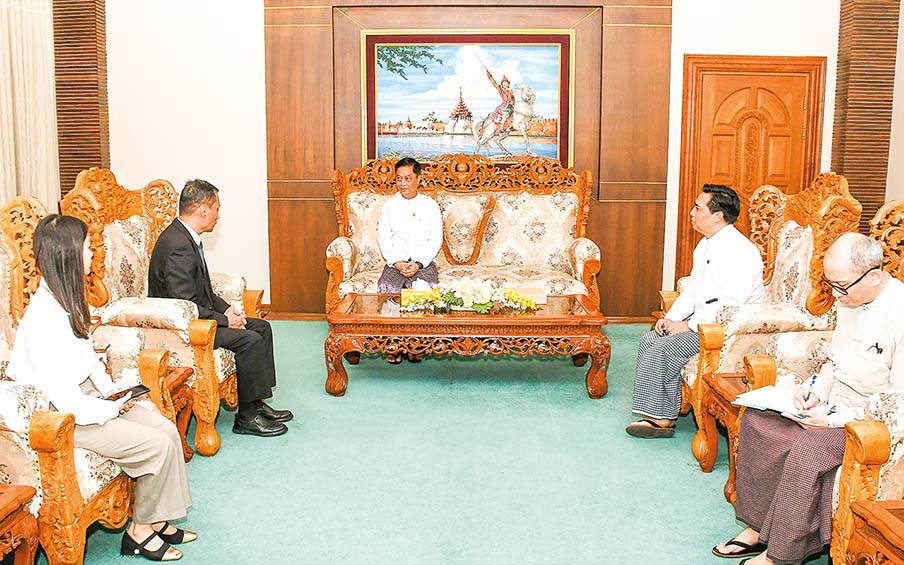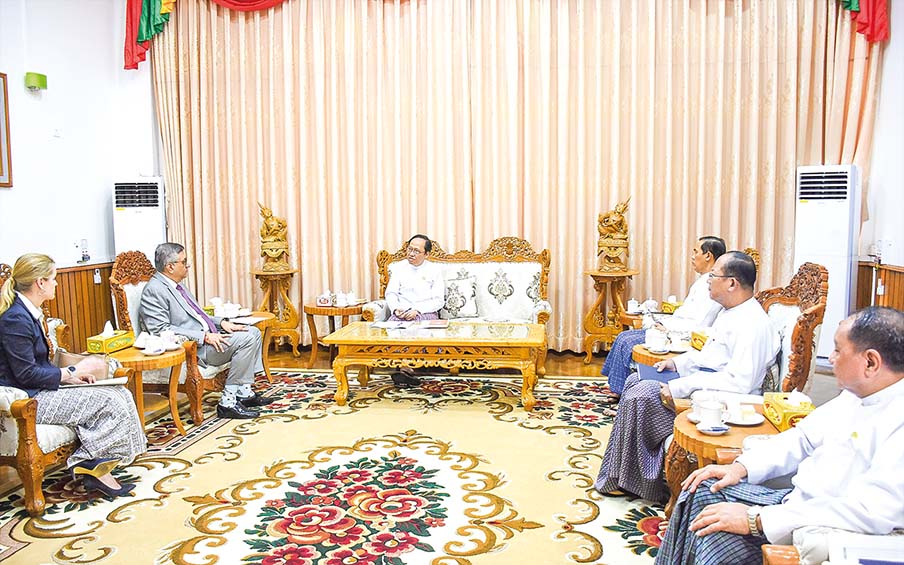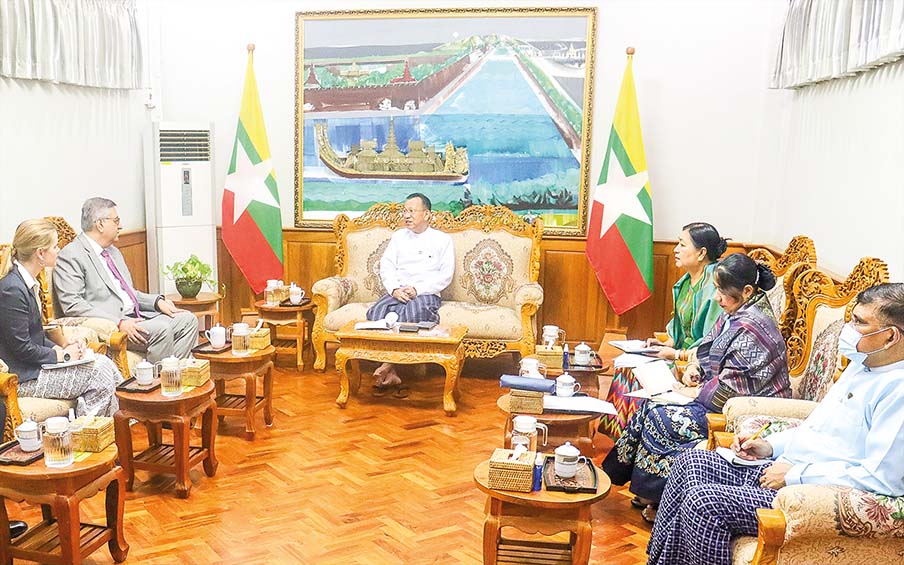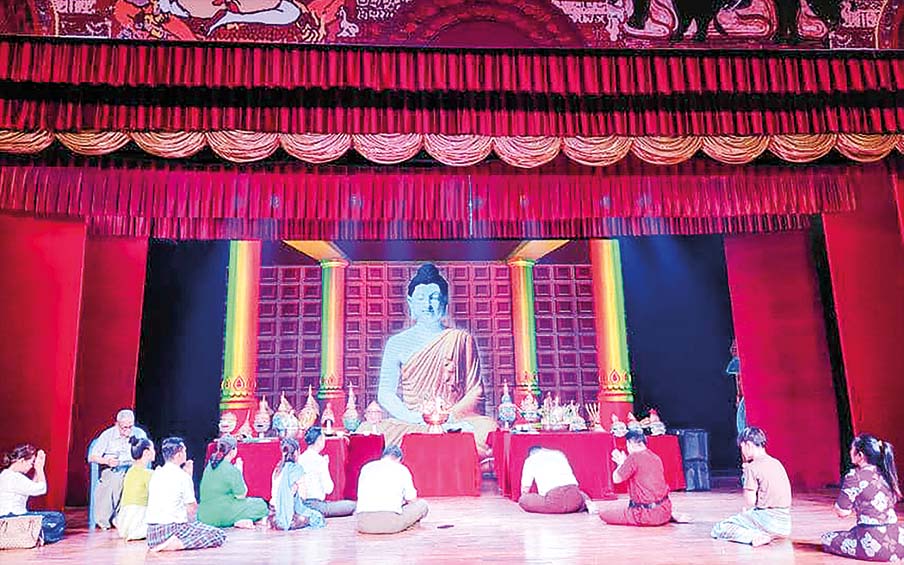I pressed a number and heard a voice on the other end say, “Hello”. It was U Thant Htun’s voice.
“U Thant Htun, it’s me… Can you come at 3 pm? I’d like to get my hair cut,” I said.
“Sure… I’ll be there…” he replied.
His name is U Thant Htun, and his lifelong occupation has been cutting hair. Initially, he worked for many years in other people’s salons. During that time, I didn’t get my hair cut by him but by the owner of the salon where he worked. Later, U Thant Htun left the salon and intended to open his own, but he never did. Instead, I noticed him going around town cutting hair at people’s homes. About fifteen years ago, my health declined, and I couldn’t go to the barbershops anymore. Since then, I’ve had U Thant Htun come to my place for haircuts.
Reflecting on the years that have passed, the changes in our lives become evident. The passage of time and the law of nature dictate that as we age, our abilities and circumstances transform. This natural progression is unavoidable, a universal truth that everyone must face. The physical decline that comes with age often brings limitations that affect our daily lives, and U Thant Htun and I are no exceptions to this rule.
In the days before mobile phones, I couldn’t call him. Later, when I started using a phone, I saved his number during one of his visits, and since then, I’ve been calling him to arrange my haircuts. Over the years, there were only one or two times when he cut my hair exactly how I wanted. But I kept having him cut my hair because I couldn’t go out due to my health and also because I enjoyed hearing about the outside world from him. Our conversations during these visits became a cherished routine, offering a window into the bustling world outside my confined existence.
U Thant Htun isn’t a politician and doesn’t belong to any political party, but he is very interested in politics and keeps himself well-informed. He often shares what he knows with others. I’m just a listener, but it helps pass the time during the haircuts, and I get to learn something, too. Sometimes, he talks about his family, and again, I just listen. His insights, drawn from years of listening to the radio and observing the world around him, add a unique perspective to our discussions.
Now, I’m 70 years old, and he’s 75. I don’t go out much, and he has also slowed down significantly. He used to get around on a bicycle, but now his family doesn’t allow him to ride it anymore. It’s understandable; he’s too old for it, and the city is full of motorcycles and bicycles, which makes it unsafe. The shift from being independent to relying on others marks a significant change in our lives, one that underscores the inevitability of ageing.
I get my hair cut once every two months, so I see U Thant Htun about six times a year. Because we’re familiar with each other, he shares a lot, especially about politics. I don’t understand much about politics and am afraid to discuss it, but he uses the radio a lot, so he shares news and his thoughts about it during his visits. His passion for staying informed and his willingness to share what he knows highlight the importance of remaining mentally active, even as physical abilities decline.
Given his age, it’s no longer appropriate for him to go around cutting hair. Seeing him walking to his clients’ houses, I’ve noticed that they often pay him more than his standard fee out of gratitude. When he used to cut my hair, I paid 500 kyats, which was very reasonable for a home service. Nowadays, I don’t ask about his rates anymore; I just pay him 4,000 or 5,000 kyats per cut. He always wishes me health and happiness in return. This increase in payment is not just a recognition of his service but also an acknowledgement of the challenges he faces as he continues to work despite his age.
Lately, I’ve noticed that U Thant Htun seems more worn out. I think his children can’t support him much, which is why he’s still cutting hair. I feel bad calling him, but there’s no one else who provides this kind of home service. Last week, when he came, he didn’t talk as much about politics as he usually does. Maybe it was the hot weather or his health — I’m not sure. This visible decline is a stark reminder of our mortality and the inevitable changes that come with ageing.
Both of us are getting older. One day, I’ll call him, and there will be no answer, or he won’t be able to come anymore. Something will change, inevitably. The nature of infirmity means that at some point, our roles might reverse, or our relationship might come to an end. This contemplation brings a mix of melancholy and acceptance, knowing that life’s transient nature is something we all must come to terms with.
The process of ageing is a complex interplay of physical, mental, and emotional changes. As we grow older, our bodies naturally lose strength and vitality. This decline can be gradual or sudden, but it is always a reminder of the impermanence of life. For U Thant Htun and me, this journey is marked by our shared experiences and the recognition of our limitations. The challenges we face are not just personal but universal, reflecting the broader human condition.
The law of nature dictates that all living beings must age and eventually pass away. This cycle of life and death is an inherent part of existence. While it brings challenges, it also offers opportunities for growth and reflection. For instance, the decline in physical abilities often leads to a deeper appreciation for the moments of connection and understanding we share with others. These interactions become more meaningful as we recognize the limited time we have.
In contemplating the nature of infirmity, we come to understand the resilience of the human spirit. Despite the physical limitations that ageing imposes, there is a strength in adapting to new circumstances and finding joy in small, everyday moments. U Thant Htun’s dedication to his work, even at an advanced age, is a testament to this resilience. Despite the challenges he faces, his continued efforts to provide a service highlight the determination and resourcefulness that define the human experience.
Moreover, the bond that forms between individuals like U Thant Htun and me is a reflection of the interdependence that becomes more pronounced with age. As we grow older, we rely more on each other for support, companionship, and understanding. These relationships are a crucial aspect of coping with the changes that come with ageing. They provide a sense of continuity and connection, helping us navigate the uncertainties of life.
As I look back on the years of haircuts and conversations with U Thant Htun, I am reminded of the importance of cherishing these moments. Each visit is not just a routine but a significant part of our lives. The stories he shares, the knowledge he imparts, and the simple act of getting a haircut all contribute to a rich tapestry of experiences that define our existence. These interactions are a source of comfort and familiarity, grounding us in a world that is constantly changing.
In brief, the inevitability of ageing and the infirmities that accompany it are fundamental aspects of the human condition. They challenge us to adapt, to find new ways of living, and to appreciate the connections we have with others. For U Thant Htun and me, our shared journey through these years has been marked by mutual respect, understanding, and a recognition of the transient nature of life. As we continue to age, these moments of connection become even more valuable, reminding us of the resilience and beauty inherent in the human experience.
(Based on True Story)
Ageing Gracefully
- June 10, 2024
- 87
